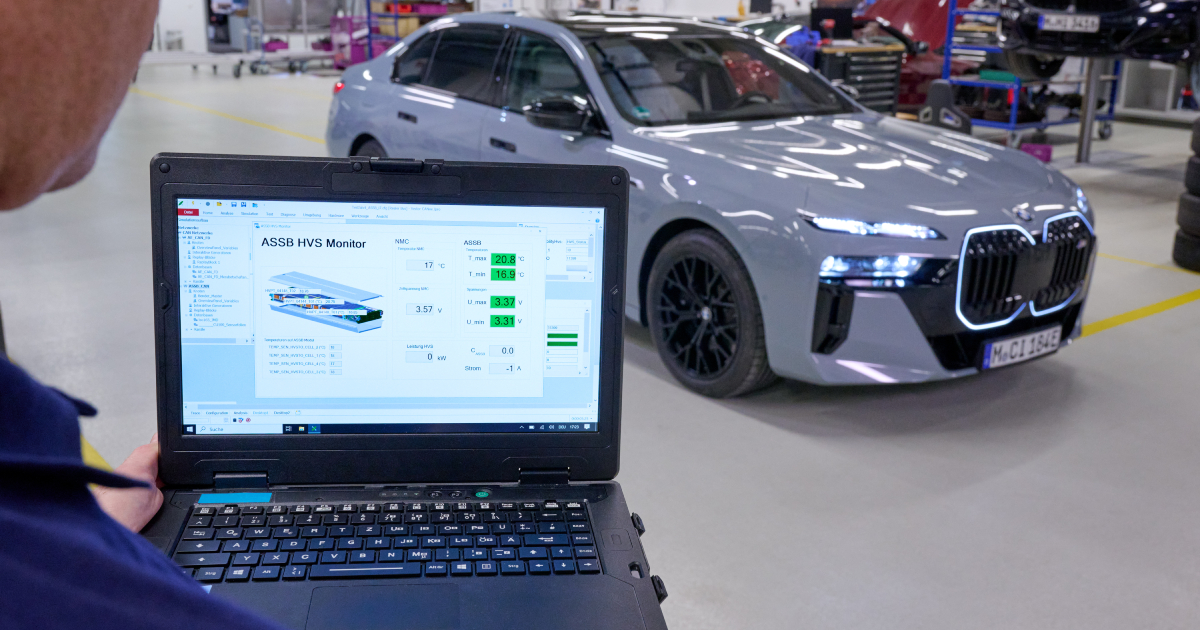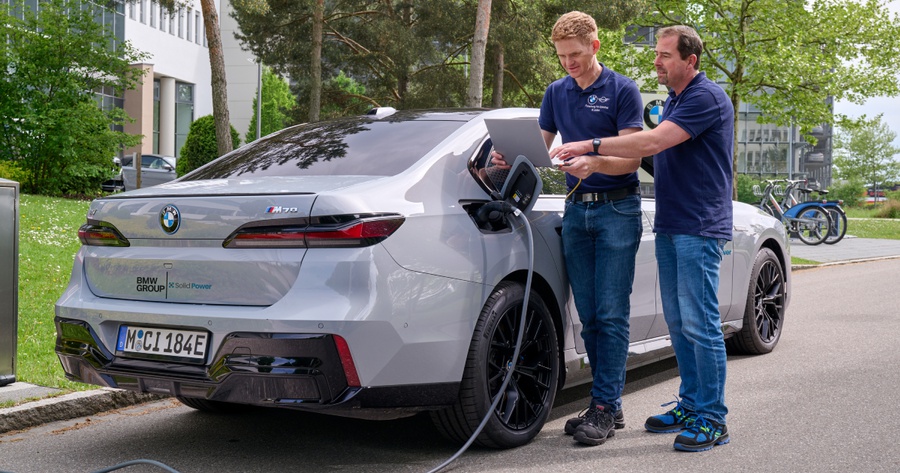BMW has begun testing Solid State Battery Cells (ASSB) under real-world conditions in the Munich area - based on the BMW i7 electric sedan.
This vehicle features an experimental battery that combines the proven Gen5 architecture with prismatic cells and a new modular layout adapted from Solid Power solid state cells. This approach allows the investigation of important parameters such as cell expansion, pressure control and temperature conditions inside the battery pack.
The solid state cells used are based on a sulphide electrolyte. Their full integration into the battery module will provide BMW with valuable data that will help in further stages of development. Despite the progress made, both companies recognise that a significant amount of work will still be required to bring the technology to a competitive series level.
BMW and US-based Solid Power have been actively developing the joint ASSB programme since 2022. Although the co-operation began back in 2016 under a joint development agreement, BMW invested in Solid Power in 2021 in one of its funding rounds. Three years ago, the partnership was expanded: BMW was granted a licence to operate a pilot production line of solid cells at its own Battery Manufacturing Competence Centre (CMCC) in Parsdorf, Germany.
Source: BMW


